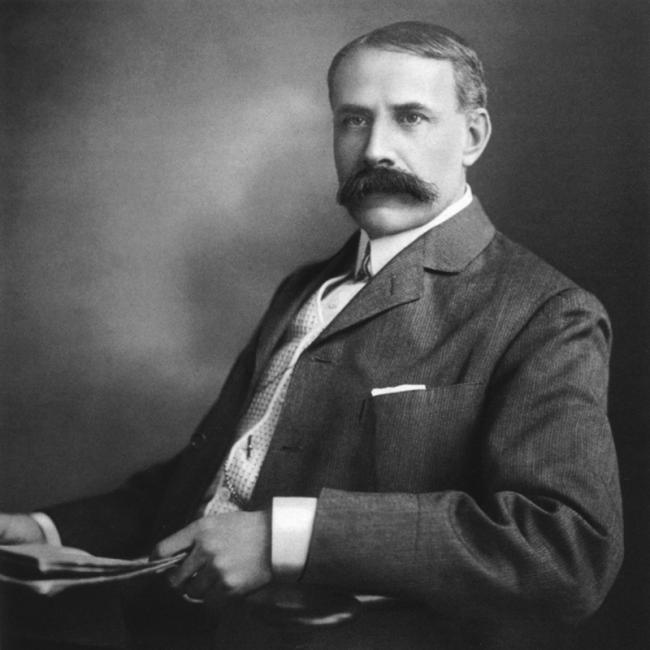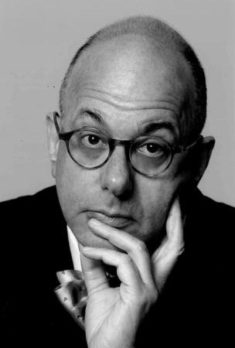Botstein, ASO reveal the mystical Elgar in “The Apostles”

Edward Elgar’s oratorio “The Apostles” was performed by the American Symphony Orchestra led by Leon Botstein Friday night at Carnegie Hall.
Does the world really need a Wagnerian oratorio? Edward Elgar thought it needed three.
Inspired by a visit to Bayreuth, where he heard Der Ring des Nibelungen and Parsifal, the English composer–a devout Roman Catholic– conceived a cycle of three massive choral works tracing the epic of Christianity from its desert origins to its culmination in the Last Judgment. In the end, he completed two: The Apostles, which is full-evening length, and The Kingdom, at about an hour and a half.
As energetically performed Friday night in Carnegie Hall by the American Symphony Orchestra, Bard Festival Chorus and six soloists led by Leon Botstein, The Apostles inhabited a sphere far removed from Handel or Mendelssohn, where Catholic mysticism intersected with the “bruised reed” of humanity, personified in the morally compromised characters of Judas, Mary Magdalene, and Peter.
The narrative of The Apostles, such as it was, took a kind of Rosenkrantz-and-Guildenstern view of the gospels and the Book of Acts, from which Elgar compiled most of the work’s text. Jesus became a distant, oracular figure, while the world-shaking events of his ministry, crucifixion and resurrection were seen from the perspective of his followers.

Leon Botstein
It all unfolded on Friday with unmistakably Elgarian turns of phrase set amid intensely chromatic, Parsifal-inspired harmonies. The orchestra, led with minimal gestures by Botstein, went from mystical shimmer to cinematic glitz with aplomb, as visions of light entering the world gave way to dancing girls with tambourines singing “It is a good thing to give thanks unto the Lord.”
Musical metaphors also received their due, as when a sly tinkle of glockenspiel accompanied a reference to Judas’s “thirty pieces of silver.”
Storytelling, however, was mostly not the point of The Apostles. The traditional role of Evangelist was demoted to a so-called Narrator, who set the scene in brief passages. Elgar did follow the custom of writing this part for a high male voice, and on Friday Paul McNamara delivered it admirably in a clear, English-style tenor.
Interestingly, following Mary Magdalene’s appeal to Jesus for absolution of her sins at the end of Part I, Elgar abandoned his objective male Narrator and subsequently assigned all narration to her, as a more emotionally involved observer. Music critics in Protestant, patriarchal Edwardian England were puzzled at Mary’s prominent role in an oratorio about the Apostles, but listeners today can be grateful to the Catholic composer for so richly representing the feminine perspective.
Mezzo-soprano Sara Murphy, using her dramatic instrument with restraint, gave an understated but expressive rendition of Mary’s long, anguished text (“My tears run down like a river day and night.”), as the composer seemed less interested in Mary’s spiritual pain than in breaking out the tambourine for another round of choral revelry illustrating Mary’s sins (“Let us fill ourselves with costly wine and ointments”).
The composer’s stiff-upper-lip sensibility seemed also to affect bass-baritone Alfred Walker’s role as Judas, the repentant betrayer of Jesus. Early in the character’s featured scene in Part II, not even Walker’s splendid deep-baritone delivery could make the repentant apostle’s suffering emotionally convincing. By scene’s end, however, there was no denying the cumulative effect of Wagnerian fate motives, distant cries of “Crucify him!” and Walker singing “Over me is spread an heavy night…”
Also billed as a bass-baritone but singing in a much higher range was Joseph Beutel as Peter, who appeared briefly in this work as the all-too-human screw-up who tried to walk on water but sank and denied knowing Jesus three times (to his later chagrin, not depicted here). Beutel’s bold, resonant rendition of Peter’s lines had a nice irony to it, considering the character’s many failings.
Fortunately for audience members with a train to catch, Elgar reduced the cast of Apostles from twelve to three for this work. The third was John, who, having committed no noteworthy sins, was there mainly to top off the male solo ensembles. In addition to his early duties as Narrator, tenor McNamara sang this high part admirably.
Soprano Jennifer Check made brief but significant contributions, first as a rather brittle-voiced Angel Gabriel in the work’s early moments, proclaiming the return of the Lord’s “watchman,” then in much warmer, more legato tones as Mary, Mother of Jesus, comforting Mary Magdalene and proclaiming Christ’s ascension.
As Jesus, bass-baritone Adrian Rosas sang at first in rather chilly, narrow tones that seemed oddly appropriate for the remote figure depicted in this work. Later, his singing grew in force, if not warmth, so that by the closing ascension scene he was delivering the oratorio’s essential message (“Go ye therefore and teach all nations”) with assurance and power.
In fact, as performed Friday night, the entire score had a cumulative effect leading to that final scene, beginning with the rather disparate material of Part I (the coming of light, the Beatitudes, Mary Magdalene), picking up momentum in the “backstage” view of Christ’s Passion, leading to the tomb, the ascension, and finally an ecstatic vision of the True Faith flooding the world with light.
Credit is due to the Bard Festival Chorus, as prepared by James Bagwell, for this choral climax that ended the work on a high note indeed. Although there was room for improvement in their projection of the text all evening, they set the tone beautifully in the work’s opening chorus, the often-excerpted anthem “The spirit of the Lord is upon me.”
This performance concluded the season of the American Symphony Orchestra. The 2017-18 season begins with “The Sounds of Democracy,” works by Copland, Sessions, and Bernstein, Oct. 11 at Carnegie Hall. americansymphony.org; 212-868-9276.






